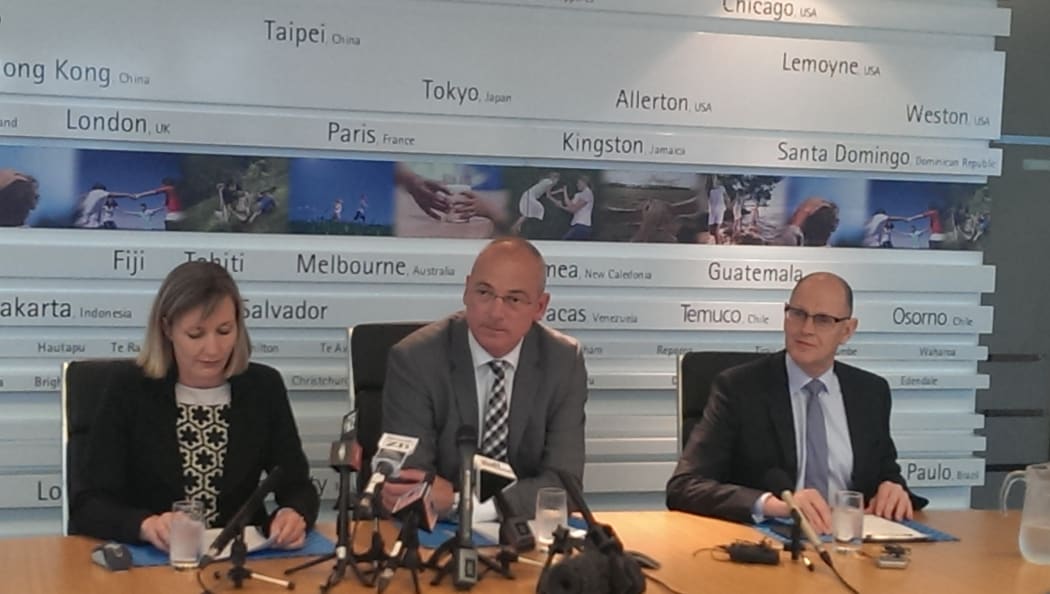Fonterra's chief executive Theo Spierings says he should have known milk powder was potentially contaminated by Clostridium botulinum, which can cause botulism, a month earlier than when he was told.
The company has revealed the findings of its operational review into the botulism scare, which sparked a global recall of products containing the affected whey protein concentrate, last month.

Theo Spierings at Wednesday's news conference, flanked by Maury Leyand (left) and group director communications Kerry Underhill (right). Photo: RNZ
The Ministry for Primary Industries last week confirmed the concentrate, which is used in infant formula and other food products, was actually contaminated by a different bacterium, Clostridium sporogenes, which does not have health effects.
The review found that the scare happened when the concentrate was re-processed using different equipment, after concerns plastic may have been in the batch.
Fonterra says the dirty pipe in which the contamination occurred has been decommissioned and the factory, at Hautapu near Hamilton, was shut down for one day last week to ensure the gear was up to scratch.
Mr Spierings says he should have been told about the scare when independent testing was being discussed, at the end of June, not days after the first results were known. He says it should have been escalated to the highest level then.
He says a number of changes have been made, including appointing a senior manager to oversee food and safety.
Fonterra also says there was a one-off information sharing problem, when it took longer than it should have to identify where the contaminated concentrate was from.
The company says a board review to be completed at the end of the month will examine whether disciplinary action should be taken against any staff.
Fonterra's group strategy director Maury Leyland, who compiled the findings, says the original decision to reprocess contaminated material, combined with using a non-standard piece of equipment, caused the problem.
"This event occurred when a number of separate and unrelated incidents lined up in a sequence that we hadn't foreseen."
Ms Leyland says information sharing across the organisation was poor and people left it too long to tell the chief executive.
She says a major computer system upgrade at its Australian manufacturing site also delayed product tracing.

